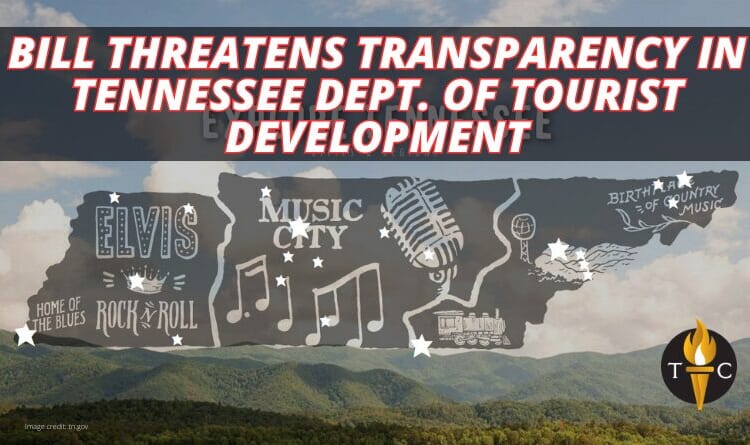Image Credit: tn.gov
The Tennessee Conservative Staff –
Recently proposed legislation would allow the Tennessee Department of Tourist Development to keep records hidden from the public at the discretion of the attorney general and tourism commissioner.
House Bill 1692 (HB1692), sponsored by Representative William Lamberth (R-Portland-District 44), would allow those records to be exempt from public records laws if the information contained in them was considered “sensitive”. The Senate Bill (SB2093) is being carried by Senator Jack Johnson (R-Franklin-District 27).
A similar law was passed in 1988 for the Tennessee Department of Economic and Community Development, allowing that department to keep records secret for five years.
According to Lamberth, he is the sponsor of the bill, but the legislation actually comes at the request of the Department and Governor Bill Lee’s administration.
“They wanted some of the same options that ECD has when they are pursuing a large tourist opportunity for the state,” Lamberth stated. “Some of those preliminary discussions are not public when it comes to ECD projects, and they wanted the same thing.”
Lamberth noted that from the beginning he went through the legislation to ensure that the department wasn’t given “carte blanche.” He says that is why the attorney general is part of the decision making.
Amanda Murphy, spokesperson for Tourist Development, says that passing the bill would give them an advantage by allowing them to work on business proposals without having to expose the finances of potential investors.
“Tourist Development needs the ability to conduct due diligence without risking the disclosure of sensitive information that could harm our stakeholders’ competitive edge or business deals,” Murphy said.
Governor Lee’s office claims that protecting the confidentiality of potential clients would aid Lee in “creating jobs and greater opportunity for Tennesseans.”
Critics of the bill say it creates a problem with transparency, allowing the commissioner and the attorney general to determine what is sensitive.
“It’s just a very broad definition, and very subjective based on what the commissioner feels is sensitive,” Deborah Fisher, executive director of Tennessee Coalition for Open Government, told The Tennessean.
“If that’s what they want to keep confidential – developing contracts – then all they would have to do is write into that exemption,” Fisher continued.
The bill goes before the House Public Service Subcommittee on Tuesday, February 13th.



